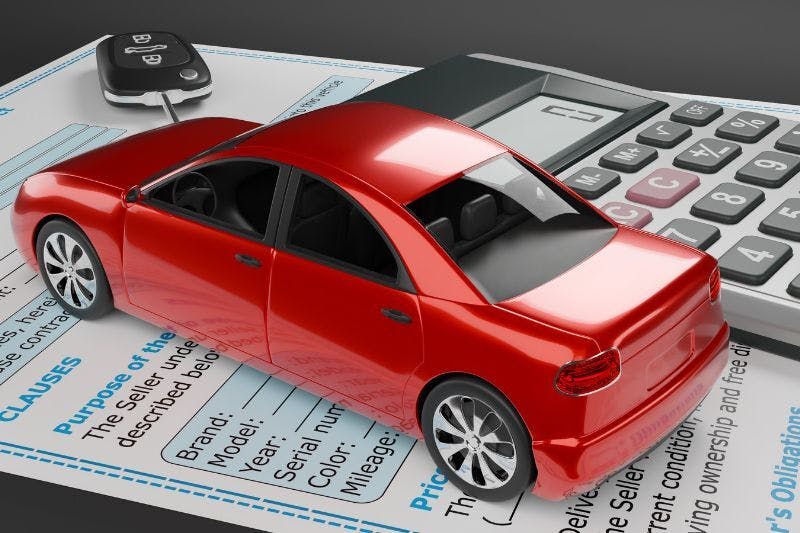
You need a new car, not just for convenience, but because your business depends on it. Maybe your current vehicle can’t keep up, or you’re finally ready to invest in a larger vehicle. But now you’re asking: “Can I save some money by deducting this as an expense from my taxes?”
If you’re a small business owner or self-employed in Texas, the answer might be yes - if you handle it right. While Texas doesn’t have local income taxes, the IRS allows several federal deductions related to business vehicles. Let’s walk through the deductions and how you can get the most benefit out of them.
What qualifies as business use?
To claim any car-related deductions, your vehicle must be used for business purposes. That includes:
Driving to meet clients
Traveling between job sites
Picking up supplies or delivering products
Deducting motor vehicle costs with Section 179
One of the biggest tax breaks for self-employed, or small business Texans buying a new car is Section 179. This allows you to deduct the full or partial cost of a vehicle in the year it’s placed into service.
To qualify for a Section 179 deduction:
The vehicle must be used more than 50% for business.
The vehicle must be suitable for the type of business you own, and therefore, there are caps on certain luxury vehicles.
You cannot claim more than $1,220,000 on total assets for the year.
Heavy SUVs and trucks that are specially used for business deliveries (over 6,000 GVWR) may qualify for larger deductions - sometimes up to the full purchase price.
In addition to the Section 179 deduction are the Special Allowance Deduction and Depreciation Deduction. Have you heard about this? If not, schedule a consultation with Hall Accounting Company. Let’s discuss all the deductions you can claim when you buy a new vehicle.
Further helpful information: Tax Benefits of Leasing a Car vs. Buying a Car for Business
Car sales tax deductions in Texas

Texas imposes a general sales tax rate of 6.25% on purchases, including motor vehicles, with local jurisdictions adding up to 2% more. That means your vehicle sales tax could be as high as 8.25%.
So, can you deduct sales tax on a vehicle?
Yes - under certain circumstances. The IRS allows you to deduct the sales tax as part of your itemized deductions, in place of income tax. Since Texas doesn’t have a state income tax, this is especially useful for residents.
If you itemize, you can either:
Use the IRS’s general sales tax tables based on your gross income, or
Add sales tax paid on the new vehicle purchase and increase your deduction.
Example:
A self-employed consultant in Austin who brought a $40,000 SUV for business could add the nearly $3,300 in vehicle sales tax to their total sales tax paid, boosting their deduction beyond what the table allows.
Claiming the sales tax deduction
To deduct sales tax, you must itemize deductions on your federal return. This allows you to subtract qualifying taxes from your gross income, potentially reducing your overall tax bill.
Because the IRS only lets you deduct either state income tax or sales tax—but not both—Texans typically benefit more by claiming the sales tax deduction, since the state doesn’t collect income tax at all.
Personal property taxes on a new car
Each year, Texas counties may charge personal property taxes on your vehicle - this is separate from the local sales tax. These annual taxes are deductible on your federal return if they are:
Based on the car’s value, and
Charged annually
You will include personal property taxes as part of your state and local tax deductions on your federal tax return, if you itemize.
Additional vehicle expenses you can deduct

There are a number of deductible expenses you can deduct when you use your car for business. The benefit of this is a reduction in your taxable income. The following expenses qualify:
Gas and oil
Insurance premiums
Maintenance and repairs
Registration and licensing fees
Parking and tolls
Lease payments
A notable point about the last item, because it comes up a lot. The lease payments (either partially or fully) must be proportional to the business usage. For example, if your car is 70% for business, then you can only deduct 70% of eligible costs.
Choosing the Right Deduction Method: Mileage vs. Actual Expenses
When claiming vehicle-related tax deductions, you’ll need to choose between two main methods: the standard mileage rate or actual expenses.
The standard mileage rate is 70 cents per mile for business use. This is a simple way to calculate your deduction, especially if you drive a lot for work but don’t want to track every receipt. Just multiply your business miles driven by the IRS rate.
The actual expenses method requires more documentation, but may result in a larger deduction. This includes costs like fuel, oil changes, insurance, registration, depreciation, and even garage rent (if used for business).
Whichever method you choose, keep detailed records. For example, use a mileage log or a mobile app to track business trips. Save receipts and make note of any sales taxes paid and personal property taxes.
Final thoughts: Let your new car work for your taxes
Thank you for joining us for this accounting snapshot on tax deductibles when buying a new business vehicle. In a few short minutes, you’ve had the opportunity to understand the basic tax implications of buying a new car, whether a SUV, work truck, or reliable sedan for client meetings.
Of course, there is much more to be said about this matter. To take full advantage of tax deductions in Texas and on a federal level, speak to a trusted and reliable accounting partner that can do much more than manage your books.
Our senior tax associates at Hall Accounting Company will be happy to review your business needs and make suggestions about how you can claim all the deductions the IRS makes available to business owners and self-employed individuals.
Schedule a consultation now, before the next tax season rolls along.